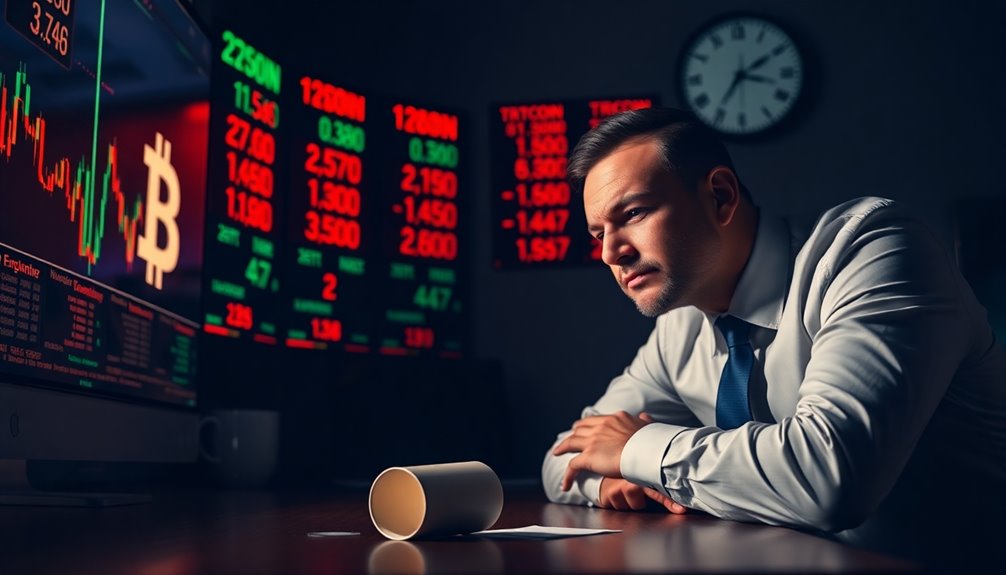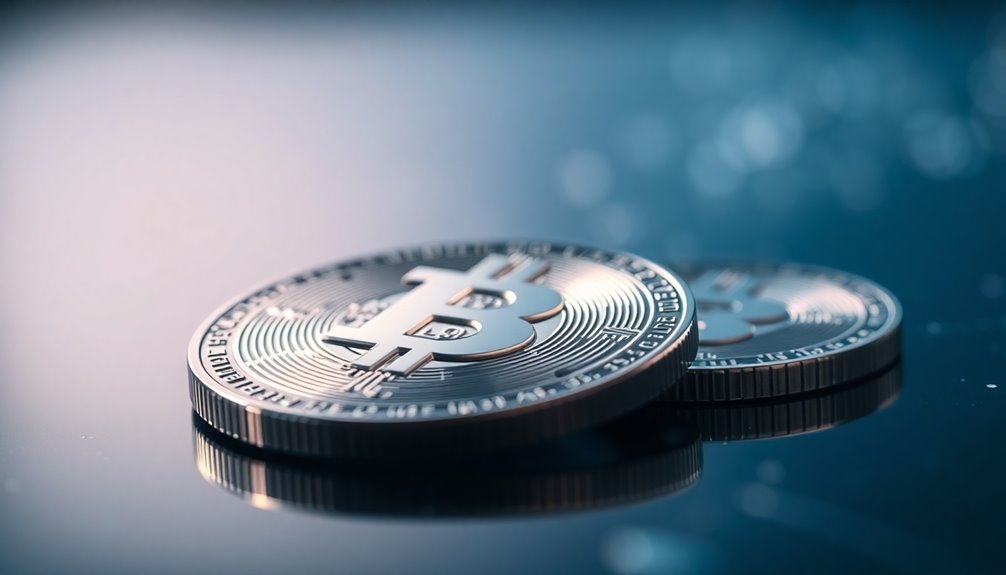Arthur Hayes is raising serious concerns about the possibility of a U.S. Bitcoin reserve. He believes it could lead to a market crash, as government control might trigger manipulation and increased volatility. This scenario threatens the very essence of Bitcoin's decentralized nature. As regulatory frameworks evolve, the implications for both investors and the broader ecosystem could be significant. So, should you be worried about the future of your investments?

As concerns about political manipulation grow, Arthur Hayes warns that a significant Bitcoin crash could be on the horizon. You might wonder how a U.S. Bitcoin reserve could trigger such a downturn. The answer lies in the political risks associated with government involvement in cryptocurrency. If the government starts accumulating Bitcoin, it could quickly become a tool for political agendas, depending on which party is in power.
Imagine the implications of a Bitcoin reserve. Initially, large-scale purchases might drive prices up, creating a temporary wave of optimism. But once the buying stops, the market could face stagnation or even a downturn. You might find the asset vulnerability alarming; any government-owned Bitcoin could be sold off swiftly to serve political ends, leaving the market in chaos. Moreover, political shifts could dictate the management of the reserve, adding unpredictability to the market. Additionally, a lack of diversified investments in the cryptocurrency sector could exacerbate the impact of any government-led market manipulations.
Without a long-term strategy, these accumulations could lead to instability as governments prioritize short-term political leverage over sustainable financial goals. The potential for regulatory uncertainty adds another layer of concern. If the government's initiative doesn't engage meaningfully with the Bitcoin ecosystem, it risks alienating core developers and node operators. This disconnect could exacerbate market volatility.
In light of these factors, it's easy to see why Hayes predicts a crash to around $70,000 before a possible rebound to $250,000 by year's end. That's a rollercoaster ride you probably don't want to endure. You may also consider the economic implications of such a reserve. While there might be an initial price surge, the likelihood of market turmoil looms large.
A new administration could view the Bitcoin reserve as a quick financial lifeline, but that could centralize Bitcoin, undermining its decentralized ethos. As a result, the global impact could be significant, influencing not just local policies but also international economic strategies.
In the face of these uncertainties, it's crucial to stay informed. The looming regulatory bills could do more harm than good, favoring large institutions over the decentralized nature of cryptocurrencies. With differing views within the industry, concerns about whether a Bitcoin reserve is a genuine long-term commitment or merely a political stunt remain valid.
As you navigate this landscape, consider how these developments might affect your investment strategy and whether the potential risks are worth the rewards.









